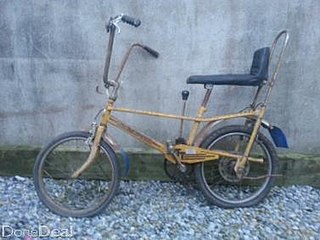Related Research Articles

The University of East Anglia (UEA) is a public research university in Norwich, England. Established in 1963 on a 320-acre (130-hectare) campus west of the city centre, the university has four faculties and 26 schools of study. The annual income of the institution for 2021–22 was £295.5 million, of which £30.2 million was from research grants and contracts, with an expenditure of £370 million, and had an undergraduate offer rate of 85.1% in 2021.
Dinky Toys was the brand name for a range of die-cast zamak zinc alloy scale model vehicles produced by British toy company Meccano Ltd. They were made in England from 1934 to 1979, at a factory in Binns Road in Liverpool.
Hornby Railways is a British model railways manufacturing company. Its roots date back to 1901 in Liverpool, when founder Frank Hornby received a patent for his Meccano construction toy. The first clockwork train was produced in 1920. In 1938, Hornby launched its first 00 gauge train. In 1964, Hornby and Meccano were bought by their competitor, Tri-ang, and sold when Tri-ang went into receivership. Hornby Railways became independent again in the 1980s, and became listed on the London Stock Exchange, but due to financial troubles reported in June 2017, became majority owned by British turnaround specialist Phoenix Asset Management.

A dollhouse or doll's house is a toy home made in miniature. Since the early 20th century dollhouses have primarily been the domain of children, but their collection and crafting is also a hobby for many adults. English-speakers in North America commonly use the term dollhouse, but in the United Kingdom and other English-speaking countries the term is doll's house. They are often built to put dolls in.

Revell GmbH is an American-origin manufacturer of plastic scale models, currently based in Bünde. The original Revell company merged with Monogram in 1986, becoming "Revell-Monogram". The business operated until 2007, when American Revell was purchased by Hobbico, while the German subsidiary "Revell Plastics GmbH" had separated from the American firm in 2006 until Hobbico purchased it in 2012, bringing the two back together again under the same company umbrella. After the Hobbico demise in 2018, Quantum Capital Partners (QCP) acquired Revell.
Tri-ang Railways was a British manufacturer of toy trains, one of the elements of the Lines Bros Ltd company who traded using the brands Tri-ang, Minic, Pedigree, and Frog. The Tri-ang Railways name was dropped a few years after Lines Bros took over the Hornby name although the majority of the trains were still the original Tri-ang models.
Meccano Ltd was a British toy manufacturing company, established in 1908 by Frank Hornby in Liverpool, England, to manufacture and distribute Meccano and other model toys and kits created by the company. During the 1920s and 1930s it became the biggest toy manufacturer in the United Kingdom and produced three of the most popular lines of toys in the twentieth century: Meccano, Hornby Trains and Dinky Toys.

Lines Bros Ltd was a British toy manufacturer of the 20th century, operating under the Tri-ang Toys brand name.

The London, Midland and Scottish Railway (LMS) Fowler 3F0-6-0T is a class of steam locomotives, often known as Jinty. They represent the ultimate development of the Midland Railway's six-coupled tank engines. They could reach speeds of up to 60 mph (97 km/h).
Spot-On models, was a brand name for a line of diecast toy cars made by Tri-ang from 1959 through about 1967. They were manufactured in 1:42 scale in Belfast, Northern Ireland, of the United Kingdom. Competition for Spot-On in the British Isles were Corgi Toys and Dinky Toys. The line was particularly British and rarely produced marques from other countries.
G&R Wrenn was a toy company specialising in the manufacture of model railways. It was founded in 1950 by George & Richard Wrenn.

Selchow and Righter was a 19th- and 20th-century game manufacturer best known for the games Parcheesi and Scrabble. It was based in Bay Shore, New York.
Bayko was a British building model construction toy invented by Charles Plimpton, an early plastics engineer and entrepreneur in Liverpool. First marketed in Britain it was soon exported throughout the British Commonwealth and became a worldwide brand between 1934 and 1967. The name derived from Bakelite, one of the world's first commercial plastics that was originally used to manufacture many of the parts. Bayko was one of the world's earliest plastic toys to be marketed.

Frog was a well-known British brand of flying model aircraft and scale model construction kits from the 1930s to the 1970s. The company's first model, an Interceptor Mk. 4, was launched in 1932, followed in 1936 by a range of 1:72 scale model aircraft kits made from cellulose acetate, which were the world's first.

Richmond Brewery Stores is a building on 18 Petersham Road in Richmond, London, England. Built in red brick, it has a tiled facade with "RICHMOND BREWERY STORES" in white lettering on blue. Further to the south along Petersham Road was the brewery itself. Known as Lansdown Brewery, and operated by D Watney & Son, it was registered in April 1895, but is known to have been in existence at least as early as 1882 when the brewery design practice Davison, Inskipp & Mackenzie was engaged to extend the building. It was acquired by Brandon's Putney Brewery Ltd in 1915 and subsequently closed. By 1923 the National Fire Protection Company Limited occupied the former Brewery Stores building. In 1950 the toy manufacturer Rovex Plastics Limited, which made plastic toys for Marks and Spencer, bought the building for use as a factory, and the company's own nameplate was placed over "RICHMOND BREWERY STORES" during the firm's use of the building. By 1954, however, it was becoming obvious that the factory was quite inadequate to produce the volume of goods and, following the acquisition by Tri-ang, the factory moved to Margate in Kent in 1954.
Conway Publishing, formerly Conway Maritime Press, is an imprint of Bloomsbury Publishing. It is best known for its publications dealing with nautical subjects.

A storefront or shopfront is the facade or entryway of a retail store located on the ground floor or street level of a commercial building, typically including one or more display windows. A storefront functions to attract visual attention to a business and its merchandise.
Fun-Ho! Toys were a brand of diecast toy cars and trucks manufactured and distributed by Underwood Engineering Co. Ltd. of Inglewood, New Zealand. Production was started by Jack Underwood about 1935 and continued until 1982. Since this time reproductions have been made also in Inglewood (Taranaki) at the Fun Ho! Toys Museum. Currently toys are occasionally cast as museum memorabilia using original molding plates and boxes. The name was always portrayed with the exclamation following Fun Ho!
David Allen Hickling, known as Allen Hickling, was an Architect, Planning/Strategic Choice Process consultant, author, game designer, and an authority in the field of toy forts and castles.
A toy fort is a miniature fortress or castle that is used as a setting to stage battles using toy soldiers. Toy forts come in many shapes and sizes; some are copies of existing historical structures, while others are imagined with specific elements to enable realistic play, such as moats, drawbridges, and battlements. Toy fort designs range from the châteaux of Europe to the stockade forts of the American wild west.
References
- ↑ "Arkitex". Jackie's Architectural Pages.
- 1 2 Ward, Arthur (2013). "The Right Place at the Right Time". The Other Side of Airfix: Sixty Years of Toys, Games & Crafts. Pen & Sword Books. ISBN 9781473822313 . Retrieved 21 October 2020.
- ↑ Salter, Brian (2011). "Early Variety". Building Toys: Bayko and Other Systems. Bloomsbury Publishing. ISBN 9780747811817.
- ↑ Leggett, Bob (2019). "The Giant Awakes: Enter Tri-ang". Toy Trains: 1935–1975. Bloomsbury Publishing. ISBN 9781784423094.
- ↑ Durant, Stuart; Darling, Elizabeth (1993). Architecture and Childhood. British Architectural Library Drawings Collection. p. 18. ISBN 9781872911250.